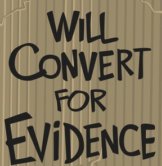
| Post-Detonation Material Collection and Analysis Methods
Post-detonation material R&D explores novel methods and advancements in the ability to collect samples of material, analyze radioactive debris, and identify signatures from debris analysis. Nuclear forensics is the examination of nuclear and other radioactive materials using analytical techniques to determine the origin and history of this material in the context of law enforcement investigations or the assessment of nuclear security vulnerabilities. Nuclear forensic (NF) techniques are critical in responding to both environmental releases of nuclear materials and illicit trafficking activities involving both nuclear and counterfeit materials. Despite rising need, however, significant barriers exist to the future success of such research. This subset of analytical chemistry contains unique concerns (e.g. chronometry and impurity signatures), a wide variety of preparatory/instrumental approaches, and is in need of innovative solutions to current problems both in and out of the lab. The present work introduces existing NF research, development challenges and notes potential areas for advancement by highlighting several key analytical approaches. Examples of concerns and techniques discussed in this review include: chronometry, reference materials, separations, counting spectrometry, mass spectrometry and more. Nuclear Forensics Technical Mission Areas |
Send comments to:
 hjw2001@gmail.com
hjw2001@gmail.com
|














